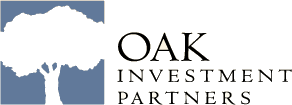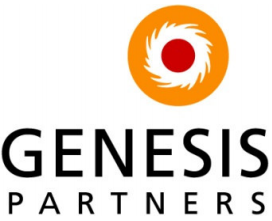
Venture capital (VC) is a form of private equity financing provided by firms or funds to startup, early-stage, and emerging companies, that have been deemed to have high growth potential or that have demonstrated high growth in terms of number of employees, annual revenue, scale of operations, etc. Venture capital firms or funds invest in these early-stage companies in exchange for equity, or an ownership stake. Venture capitalists take on the risk of financing start-ups in the hopes that some of the companies they support will become successful. Because startups face high uncertainty, VC investments have high rates of failure. Start-ups are usually based on an innovative technology or business model and often come from high technology industries such as information technology (IT) or biotechnology.
Kleiner Perkins, formerly Kleiner Perkins Caufield & Byers (KPCB), is an American venture capital firm which specializes in investing in incubation, early stage and growth companies. Since its founding in 1972, the firm has backed entrepreneurs in over 900 ventures, including America Online, Amazon.com, Tandem Computers, Compaq, Electronic Arts, JD.com, Square, Genentech, Google, Netscape, Sun Microsystems, Nest, Palo Alto Networks, Synack, Snap, AppDynamics, and Twitter. By 2019 it had raised around $9 billion in 19 venture capital funds and four growth funds.

TPG Inc., previously known as Texas Pacific Group and TPG Capital, is an American private equity firm based in Fort Worth, Texas. TPG manages investment funds in growth capital, venture capital, public equity, and debt investments. The firm invests in a range of industries including consumer/retail, media and telecommunications, industrials, technology, travel, leisure, and health care. TPG became a public company in January 2022, trading on the NASDAQ under the ticker symbol “TPG”.
Sequoia Capital Operations, LLC is an American venture capital firm headquartered in Menlo Park, California which specializes in seed stage, early stage, and growth stage investments in private companies across technology sectors. As of 2022, the firm had approximately US$85 billion in assets under management.
Ciena Corporation is an American networking systems and software company based in Hanover, Maryland. The company has been described by The Baltimore Sun as the "world's biggest player in optical connectivity". The company reported revenues of $4 billion and more than 8,500 employees, as of October 2024. Gary Smith serves as president and chief executive officer (CEO).

Oak Investment Partners is a private equity firm focusing on venture capital investments in companies developing communications systems, information technology, new Internet media, healthcare services and retail.
Hummer Winblad Venture Partners (HWVP) is an American software and web focused venture capital firm based in San Francisco, California. Its founders include John Hummer and Ann Winblad. The firm was an early investor in Napster, the first popular file sharing service, and in several internet firms that failed during the dot-com bubble.

Index Ventures is a European venture capital firm with headquarters in both San Francisco and London. It invests primarily in tech companies.

The early history of private equity relates to one of the major periods in the history of private equity and venture capital. Within the broader private equity industry, two distinct sub-industries, leveraged buyouts and venture capital experienced growth along parallel although interrelated tracks.
Lightspeed Venture Partners is a global venture capital firm focusing on seed stage, early stage investments and growth stage investments in the enterprise, fintech, consumer and healthcare sectors. Lightspeed has eleven offices globally and as of 2023 had approximately US$25 billion in assets under management.
Matrix is a US-based venture capital investment firm. The firm invests in seed and early-stage companies in the United States and India, particularly in the software, communications, semiconductors, data storage, Internet or wireless sectors.
Corporate venture capital (CVC) is the investment of corporate funds directly in external startup companies. CVC is defined by the Business Dictionary as the "practice where a large firm takes an equity stake in a small but innovative or specialist firm, to which it may also provide management and marketing expertise; the objective is to gain a specific competitive advantage." Examples of CVCs include GV and Intel Capital.

Vidyo, Inc., founded as Layered Media, now part of Enghouse systems provides software-based collaboration technology and product-based visual communication products. The company's VidyoConferencing products are the first in the videoconferencing industry to take advantage of the H.264 standard for video compression, Scalable Video Coding (SVC).
Benjamin "Ben" M. Rosen is the former chairman and former acting chief executive officer of Compaq and a co-founder of Sevin Rosen Funds.

Jerusalem Venture Partners (JVP) is an international venture capital firm founded in 1993. The fund specializes in investments in startup companies, focusing on digital media, enterprise software, semiconductors, data storage and cyber security, having raised close to $1.4 billion USD across nine funds. JVP is headquartered in Margalit Startup City Jerusalem with offices in Be'er Sheva, New York City and Paris.

New Enterprise Associates (NEA) is an American-based venture capital firm. NEA focuses investment stages ranging from seed stage through growth stage across an array of industry sectors. With over $25 billion in committed capital, NEA is one of the world's largest venture capital firms.

Genesis Partners is an Israeli venture capital firm, founded in 1996 by Eddy Shalev and Eyal Kishon.
Grandis, Inc. was founded in 2002 by Dr. Paul Nguyen and Bill Almon. Farhad Tabrizi later joined as CEO. It was backed by venture capital firms such as Sevin Rosen Funds and Matrix Partners to pioneer non-volatile solutions based on Spintronics. The solutions it developed was thin-film memory, which included the invention of spin transfer torque - random access memory (STT-RAM).
Molten Ventures, formerly Draper Esprit, is a British venture capital firm, investing in high growth technology companies with global ambitions. The firm has offices in London, Cambridge and Dublin. It is listed on the London Stock Exchange and is a constituent of the FTSE 250 Index.







